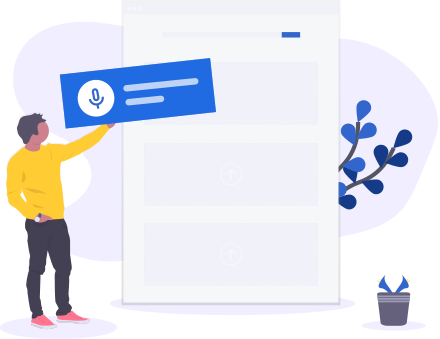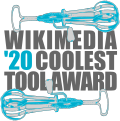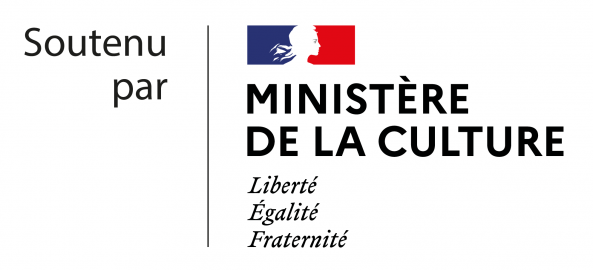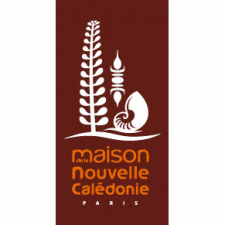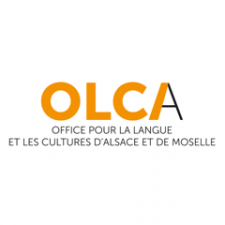LinguaLibre
LinguaLibre:Om
Lingua Libre er et projekt fra sammenslutningen Wikimédia France, som har til formål at opbygge et samarbejdende, flersproget, audiovisuelt korpus under fri licens for at:
- Udvid viden om sprog og i sprog på en audiovisuel måde på nettet, på Wikimedia-projekter og udenfor;
- Støt udviklingen af online sprogfællesskaber — især dem med dårligt begavede, minoritetssprog, regionale, mundtlige eller tegnsprog — for at hjælpe fællesskaber med at få adgang til onlineinformation og sikre vitaliteten af disse samfunds sprog.
Hvordan deltager man?
Du kan bruge Lingua Libre ved at udforske og genbruge optagelser, bidrage til korpuset ved at optage ord eller forbedre selve hjemmesiden i samråd med fællesskabet.
Fanen Record Wizard gør det muligt at optage korte lydfiler (1 ord, 1 sætning), at kategorisere dem og at publicere dem på Wikimedia Commons fra en computer eller smartphone. For at gøre det skal du logge ind eller oprette en brugerkonto. Brugervejledningen er tilgængelig på hjælpesiden.
For at ændre hjemmesidens sider skal du blot logge ind og klikke på Rediger. For at tilføje flere sider er processen i to trin: Indtast titlen på den side, du ønsker at oprette i søgemaskinen, med præfikset "LinguaLibre:". Der vises en besked, der inviterer dig til at oprette siden. For enhver væsentlig ændring, kontakt venligst fællesskabet på forhånd.
Hvorfor deltage?
Lingua Libre kommer fra observation af adskillige mangler på Wikimedia-projekter og på nettet generelt:
- Lack of diversity: While the web is in theory open to everyone, its content is far from representing all languages proportionally. More than 50% of websites are in English; only 301 of the world's 7000+ languages have a free encyclopedia [1], with a content that is inferior in quality and quantity to those of more endowed languages such as Wikipedia in English[1],[2]. In addition, these websites host content that broadly reflects and meets Western standards and needs through the medium of the written word, which explains and helps to perpetuate their lack of linguistic diversity.
- Lack of orality: Although languages are essentially spoken (only 4,000 of the world's 7,000 languages have a writing system)[4], knowledge sharing and communication via new information and communication technologies (NICTs) is mainly done in writing, particularly on the web, despite the rich multimedia format it allows. This mediation of the oral through the written word raises many barriers to contribution, such as the use of Unicode characters, the culture of the written word, the orthographic standardisation of the language or the literacy rate of the community.
- These lacks of diversity and orality limit the ability of Internet users to communicate and contribute online to various web platforms where they cannot find content and communities sharing their language. Among the regional minority languages that are oral or signed, they threaten in particular the poorly endowed ones, many of which are currently in danger of extinction and for whom inclusion on the web is a major challenge and opportunity.
- Indeed, of the 7000 languages in existence today, it is estimated that only 2500 will survive to the next century and only 250 (less than 5%!) will make their digital ascent — i.e. be used regularly for communication purposes in the digital space by native speakers who are comfortable on the web — a factor which is yet essential for their vitality[5]. Current initiatives by linguists and activists to document and share data, resources and content online in the languages to be preserved do not directly contribute to the development of a digitally-ascendant linguistic community of Internet users, and thus remain limited in their impact.
- Lingua Libre aims to make up for this lack of support by placing itself at the service of linguistic communities wishing to insert and promote their language into the digital space by exploring alternative means of communication to the written word, in the hope that this will free up online communication in a growing number of languages. This objective favours by its very nature regional minority languages that are poorly endowed in terms of oral or signed language, but also benefits more endowed languages that wish to highlight their oral and visual aspects. To fulfil its mission, Lingua Libre offers an online solution for mass recording, leading to the publication of a collaborative multilingual audiovisual corpus under free licence, whose vocation is information through consultation, and revitalisation by triggering the contribution of new language communities on Lingua Libre and then outside.
